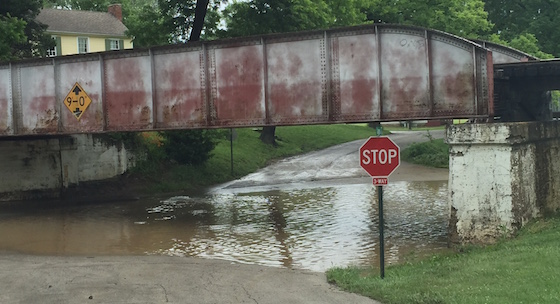Nothing has a greater impact on an RV park, during spring, summer and fall, than the way that it is mowed. Because an RV park is effectively a parking lot for RVs, there is a huge amount of roads, curbs and pads and these together form the most striking visual image to the customer.
First impressions are critical
It’s no surprise that the customer forms their first impression of your property the minute they enter. If things look nice, then they are favorably impressed and form a positive first impression. This first impression can bail you out if you do something else wrong, as they will think “what a nice RV park – too bad the pool isn’t clean – I’ll still come back”. A negative first impression would be “what a horrid RV park – just look at how bad the pool is – I would never come back”. At the worst end of the spectrum, the customer will elect just to turn around and not check-in, or reduce the length of their stay. So you have got to nail the first impression and that all revolves around mowing, since that’s the first thing you see before you even park your RV to enter the office.
What your customer really demands – and it’s not much
The three main components to proper mowing are 1) mowing 2) weedeating 3) edging and 4) removing all vegetation from concrete pads and curbs. None of these is rocket science. In fact, this is probably the most straightforward of all tasks in the RV park. If you can simply get these easy steps accomplished, then your customers will have a positive first impression every time.
What could be simpler – yet harder to execute on for many RV park owners
Sure, it sounds easy. But the reality is that most RV park owners struggle to get this simple mission accomplished. When I go out and tour our RV parks, I rarely am pleased with the mowing. I always see dozens of details that have been missed. There’s nothing more depressing than having a $5 million RV park with weeds two feet high around the entry sign. Why is it so hard to do something so simple?
Where things fall apart
Generally, where the mowing falls apart is that the park owner’s plan is unrealistic. Many RV park owners want to nickel and dime the mowing, so they choose a non-professional company (typically a family member or teenager) who then rarely shows up as promised and does a half-baked job most of the time. They go on vacation, they call in sick, and your RV park gets ruined in the process. Why would you stake a $5 million business on a 19 year old kid that can’t even clean his room?
How to make things perfect
Before you can demand perfection of your RV park’s mowing, you must first forge a realistic plan. We have found that we are far better off hiring professional landscape companies to mow our properties than to hire amateurs. Every year – in the winter – we put the mowing for the coming year out to bid. We seek bids from every landscape company in town. We also get a bid from the best amateur we can find, as well, just for comparison sake. We then select the lowest price among the professionals, using the amateur estimate as our target (what could be better than getting a professional for the price of an amateur?). These bidders must have full liability insurance and workmen’s comp. Once you make the selection, you drive the mowers crazy with perfectionism. We have found that the professionals will put you into their schedule every week and will really show up (unlike the amateurs) and they respond well to friendly criticism (unlike the amateur who might storm off in a temper tantrum). And our scary lesson learned is that the cost of the professionals can often be lower than the amateurs when you take into account supplying them the mowing equipment and insurance.
Conclusion
Mowing is so easy, yet so hard to do right. If your RV park is not looking its best in that regard, then it’s time to turn over a new leaf. The only way to succeed at mowing is to have a reasonable plan. A kid with



